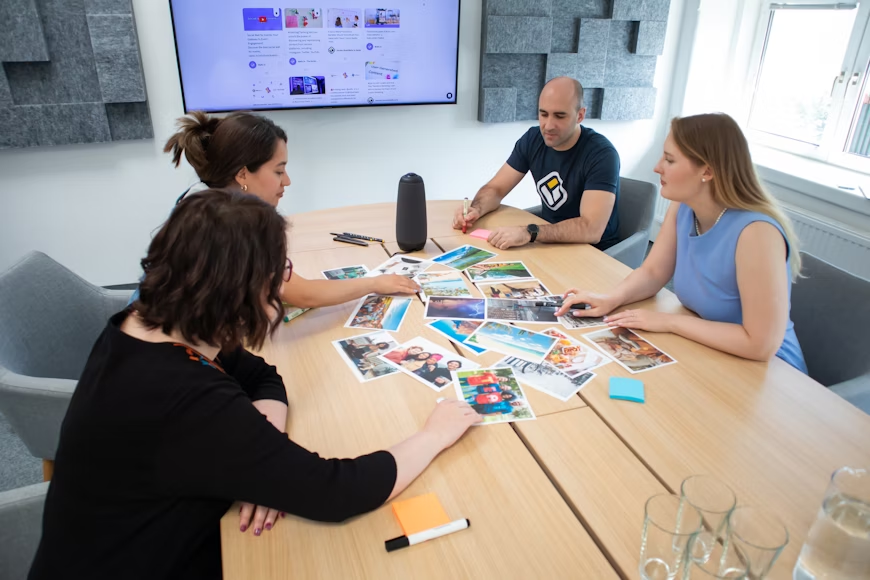The landscape of care for Mental Health Problems is rapidly evolving thanks to the powerful combination of artificial intelligence (AI) and cross-border global partnerships. As mental health challenges become more prevalent worldwide, innovative solutions driven by technology and collaboration are creating new opportunities to combat Mental Health Problems and expand access to timely, personalized care.
The Surge in Mental Health Problems
Mental Health Problems have reached a point of global concern. The growing stress of modern life, heightened by social media, economic uncertainty, and lingering effects of the pandemic, means more people—especially young adults—are seeking help for anxiety, depression, and related issues. Traditional systems are struggling to keep up with the surge, highlighting the urgent need for scalable solutions to tackle these Mental Health Problems.
How AI Is Addressing Mental Health Problems
Artificial intelligence is now playing a crucial role in transforming global partnerships mental healthcare delivery. AI-powered chatbots and digital assistants, for instance, offer nonjudgmental support, screening, and coping strategies for individuals facing Mental Health Problems. These tools work around the clock and can respond instantly, making help available when it’s most needed.
AI algorithms can detect early signs of Mental Health Problems by analyzing language patterns, sleep data, and mood indicators, allowing for earlier, more effective interventions. By tracking subtle changes in daily behavior, these digital solutions empower both patients and clinicians to address Mental Health Problems before they escalate into crises.
The Power of Global Partnerships
No single nation or organization can solve today’s Mental Health Problems alone. That’s why international alliances between research institutes, healthcare leaders, and tech firms are accelerating the pace of discovery. Through shared knowledge and pooled resources, these collaborations can develop AI-powered solutions grounded in diverse real-world data.
Recent summits on AI in mental health highlight that global partnerships enable innovative pilot programs, the sharing of best practices, and joint funding for research into Mental Health Problems. These efforts are breaking down barriers in mental health care, making high-quality support accessible to underserved communities.
Personalized and Inclusive Mental Health Care
The marriage of AI and global partnership means mental health resources can be tailored for different cultures, languages, and needs. AI models trained on global data can recognize the unique ways Mental Health Problems present across populations. This ensures more people receive support that resonates with their background and experiences, which is critical for successful care.
Additionally, these advances are reducing stigma. When people realize they can reach out for help privately—using a chatbot or app—many overcome the initial barrier to seeking support for their Mental Health Problems.
Challenges and the Road Ahead
It’s essential to acknowledge challenges like data privacy, the digital divide, and the risk of overreliance on technology. Nevertheless, leading mental health professionals agree that thoughtful AI solutions, combined with robust human support, hold the greatest promise in tackling the growing crisis of Mental Health Problems.
Global partnerships will be critical to scaling and refining these technologies. Together, nations and organizations are paving the way for a world where Mental Health Problems are met with compassion, precision, and effective care—no matter where someone lives.
Frequently Asked Questions –
How is AI helping with Mental Health Problems today?
AI supports those with Mental Health Problems by offering instant digital assessments, chatbots for basic counseling, and helping clinical teams track early symptoms for timely intervention.
Why are global partnerships important for Mental Health Problems?
International collaboration brings together expertise, resources, and diverse cultural perspectives to create more effective approaches to Mental Health Problems worldwide.
Can AI-powered tools replace therapists for Mental Health Problems?
AI tools are designed to supplement—not replace—professional care. They can offer support and early screenings, but severe or complex Mental Health Problems should always be managed by qualified professionals.
Are there privacy concerns with AI and Mental Health Problems?
Protecting personal data is crucial. Reputable programs use strict security protocols to ensure privacy for users seeking help for Mental Health Problems.







